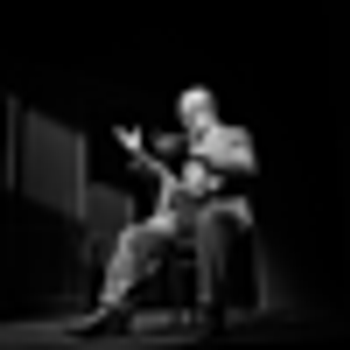
When you have a strong team, you can provide quality mental health care and have an immensely satisfying career-even in the middle of a cornfield.

When you have a strong team, you can provide quality mental health care and have an immensely satisfying career-even in the middle of a cornfield.

My advice to residents is that you remain open to the opportunities that surround you every day as you continue your education and professional training.

As the end of this psychiatrist's intern year approached, a chief resident told her that second year is the year “you really become a psychiatrist.”

Medical residency inspires and trains the physician, mentally, emotionally, and intellectually. The experiences of internship, Grand Rounds, rotation, and more--these can turn an apprentice into a master.

Kerry J. Sulkowicz, MD, is one of the most sought after psychoanalysts in the world, but he does not see patients. As founder of the Boswell Group, he consults leading global companies.

The trouble with answering this question is that I couldn’t – and still can’t – recall the “best” memory. What much more readily came to mind are some of the worst memories.

After seeing Death of a Salesman on Broadway, I knew I had seen something extraordinary-but it was only after a few days’ separation from the performance when my mind cleared and my emotions settled that I realized 2 of the reasons that made me very appreciative to see this play as a young psychiatrist.

In my experience these are the common complaints by residents who want to come to work tie-free and some simple rebuttals if you, as I do, wish to see future male psychiatrists adorning neckwear

During my career-initially as a caddy and now as a psychiatry resident-I’ve had the immense privilege of listening to the stories of others. Here's one of those stories.

Father and son psychiatrists offer the following advice, in the Oslerian spirit of honoring and guiding trainees-today’s psychiatric residents-who will become tomorrow’s psychiatric leaders.

As I near the 1-year anniversary of my crowning as a World’s Expert, it seems like only yesterday that I was just an average citizen . . . I am at heart a clinician and a consummate clinician is what I aim to be.

Every residency class needs its symbolic rebel, an outsider who will risk it all in the fight against inane and superfluous paperwork. When your program is demanding redundant treatment plans, insisting on triplicate no-show notes, or reminding you to complete some tedious log, this resident is the kind of leader who will confront the administration with tough phrases, like “This form is ridiculous.”

"What do you mean, a psychiatrist?” I asked my mom that question with great concern-and she explained to me exactly what my father did when he left the house each morning before I was even awake.

My introduction to the works of Dr Z followed shortly AFTER my own humiliation. My patient had just stormed out of the interview and informed me that I would never pass the medical boards with my apparently egregious neglect of her needs. My supervisor gave me a smile and said, “You might have done better if you approached the patient like Dr Z suggests.

“The e-mail earnings . . . the enduring, rewarding relationships you’ve always wanted . . . a higher sense of purpose and life satisfaction . . . less stress . . . overall happiness.” All this in just 2 convenient 50-minute sessions!

I was ready. In my mind I rehearsed agreeable sermons about diet, exercise, and MMR vaccines I’d use to shepherd my courteous new patients to wellness. It’s like I wanted to replace my memories of psychiatric patients with the most wholesome medical facts.

In cases of shared care, 90862 is often the only reimbursable CPT code available to the psychiatrist.

Reflecting on my internship year evokes anxious feelings, despite the fact that I am separated from it by time, distance, and hundreds of positive experiences.

While I sit in the third row of my synagogue on Saturday morning, reciting the traditional portions of the Sabbath service, I have running through my mind an additional and more intensely felt prayer-that none of my fellow congregants will approach me later to discuss their personal psychiatric care.

Empathy is the ability to put yourself in someone else’s shoes and understand what they are feeling. This is something that psychiatrists try to do in our everyday work. Those of us who have worked in medical schools have struggled with the question of whether or not this is something that can be taught.

My medical school clinical preceptor asked me, during my first year, what specialties (at The University of Chicago, the attitude toward general practice was well represented by the dismissive references to ‘LMDs’-local medical doctors) I was considering.

Telemedicine-the use of electronic technologies to deliver medical care at a distance-continues to gain popularity and widespread use in all medical specialties, including psychiatry. However, many residents enter their training without any clinical experience in telemedicine in general or its applications in psychiatry.

As health care continues to shift in the United States from fee-for-service to managed care, and away from specialist-driven care to the primary care gatekeeper, it is necessary to re-examine psychiatric training and the psychiatric services that are being provided.